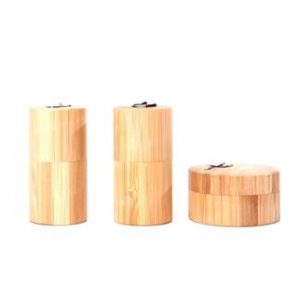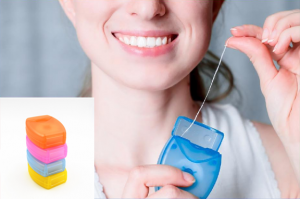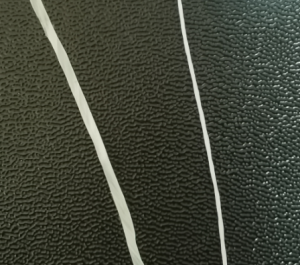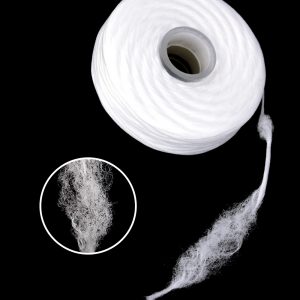Does Dental Floss Expire?
Yes, dental floss can expire. While dental floss doesn’t have a fixed expiration date like food products, it can degrade over time, especially when exposed to adverse storage conditions such as heat, moisture, or sunlight. Expired dental floss may become brittle, frayed, or lose its effectiveness in removing plaque and debris from between teeth. To ensure optimal performance and safety, it’s recommended to check the packaging for expiration dates and discard any expired or damaged dental floss.
In the bustling world of dental care products, dental floss stands as a cornerstone for maintaining oral hygiene. However, amidst the array of options available, understanding the shelf life of dental floss is paramount to ensuring its effectiveness and safety. Join us as we delve into the longevity of dental floss, exploring its shelf life across various materials and types, including fluffy dental floss.
The Importance of Shelf Life
Before we embark on our journey to unravel the mysteries of dental floss shelf life, let’s first grasp why it matters. The shelf life of dental floss determines its durability, effectiveness, and safety for use. An expired dental floss may lose its structural integrity, efficacy in plaque removal, and even pose health risks due to degradation or contamination.
Exploring Different Materials
Dental floss comes in various materials, each with its unique properties and shelf life considerations. Let’s take a closer look at some common materials used in dental floss production:
Nylon Dental Floss
Nylon dental floss, renowned for its strength and flexibility, typically boasts a shelf life of about two to three years when stored properly in a cool, dry place away from direct sunlight and moisture. However, if nylon floss becomes brittle or frayed after expiration, it’s advisable to discard it to prevent potential injury to gums or teeth.
Polyester (Polyethylene Terephthalate) Dental Floss
Polyester dental floss, known for its durability and resistance to shredding, tends to have a similar shelf life to nylon floss, ranging from two to three years under proper storage conditions. Like nylon, polyester floss may degrade over time, losing its efficacy in cleaning between teeth. Using polyester floss beyond its expiration date may lead to ineffective plaque removal and potential harm to oral tissues.
Polytetrafluoroethylene (PTFE) Dental Floss
PTFE dental floss, also known as Teflon floss, is prized for its non-stick properties and glideability. Due to its synthetic composition, PTFE floss can maintain its integrity for a longer period, with a shelf life of around three to four years when stored correctly. However, using expired PTFE floss may result in reduced effectiveness and compromised oral hygiene outcomes.
Biodegradable Dental Floss
Biodegradable dental floss, crafted from eco-friendly materials like silk or PLA, offers a sustainable alternative. However, due to its natural composition, biodegradable floss may have a shorter shelf life compared to synthetic counterparts, typically ranging from one to two years. While using biodegradable floss beyond its expiration date may not pose significant health risks, its efficacy in plaque removal may diminish over time.

biodegradable dental floss box
Fluffy Dental Floss (Dental Tape)
Fluffy dental floss, also known as dental tape, is wider and flatter than traditional floss, offering a broader cleaning surface. While fluffy floss shares similarities with nylon or polyester floss, its shelf life may vary depending on the specific materials used in its production. Typically, fluffy floss maintains its efficacy for two to three years under proper storage conditions. However, using fluffy floss after expiration may lead to reduced effectiveness in plaque removal, similar to other types of floss.
Does Dental Floss Flavor Expire?
While dental floss flavor does not necessarily “expire” in the same way as the floss itself, it may lose its potency over time. The flavoring agents added to dental floss to enhance the user experience can diminish with prolonged storage, resulting in a less flavorful or even bland flossing experience. However, the loss of flavor does not necessarily indicate that the floss is unsafe to use. If the floss remains within its shelf life and shows no signs of damage or deterioration, it should still be effective for plaque removal, even if the flavor is less pronounced.
Factors Influencing Shelf Life
Several factors can impact the shelf life of dental floss, including:
Storage Conditions: Proper storage in a cool, dry place away from sunlight and moisture is crucial for preserving the integrity of dental floss.
Exposure to Elements: Exposure to extreme temperatures, humidity, or direct sunlight can accelerate the degradation of dental floss, shortening its shelf life.
Packaging Quality: High-quality packaging, such as airtight containers or sealed pouches, can help protect dental floss from external contaminants and extend its shelf life.
Best Practices for Shelf Life Management:
To maximize the shelf life of dental floss and ensure its efficacy, consider the following best practices:
Check Expiry Dates: Always check the expiration date printed on the packaging before using dental floss. Discard any expired or damaged floss to avoid potential risks.
Store Properly: Store dental floss in a cool, dry place away from moisture, heat, and sunlight. Avoid storing floss in humid environments like bathrooms.
Inspect Regularly: Periodically inspect dental floss for signs of damage, such as fraying, discoloration, or unusual odor. Replace any compromised floss promptly.
Understanding the shelf life of dental floss is essential for maintaining oral hygiene and ensuring its effectiveness. Whether it’s nylon, polyester, PTFE, biodegradable, or fluffy floss, each type comes with its unique shelf life considerations. By adhering to proper storage practices and monitoring expiry dates, you can prolong the longevity of dental floss and safeguard your oral health effectively.



